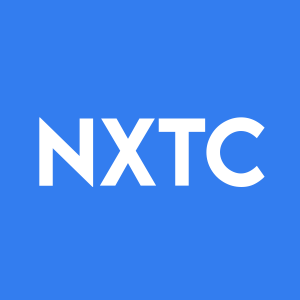Preclinical Data Demonstrate Potential Application of Anti-Siglec-15 Treatment in Bone Disease
- Treatment with anti-S15 antibody completely prevented loss of BMD in the femur and tibia
- Almost complete prevention of trabecular bone volume loss
- The antibody greatly inhibits bone resorption while maintaining bone quality
- Increased numbers of osteoblasts and markers of bone formation and integrity were observed
- None.
- Data Presented at the 2023 Military Health System Research Symposium show activity in animal model of acute spinal cord injury-induced immobilization
BELTSVILLE, Md., Sept. 05, 2023 (GLOBE NEWSWIRE) -- NextCure, Inc. (Nasdaq: NXTC), a clinical-stage biopharmaceutical company committed to discovering and developing novel, first-in-class immunomedicines to treat cancer and other immune-related diseases, today announced the presentation of preclinical data demonstrating that treatment with NC605, a novel anti-Siglec-15 (S15) antibody, reduced bone loss and enhanced bone formation and quality following immobilization in an experimental animal model of acute spinal cord injury (SCI), at the 2023 Military Health System Research Symposium (MHSRS).
Following spinal cord injury, patients typically suffer rapid and extensive bone loss. While anti-resorptive therapies have shown some efficacy in inhibiting bone loss, these agents also inhibit bone formation. In preclinical testing, NC605 has been shown to prevent bone loss by inhibiting osteoclast maturation and bone resorption by binding S15, which is expressed on the cell surface of immature osteoclasts and upregulated in differentiated osteoclasts. Unlike anti-resorptive therapies, NC605 enhances osteoblast recruitment, resulting in overall enhanced bone quality.
NextCure identified NC605 while screening S15 antibodies for anticancer properties. Further characterization revealed that a distinct group of S15 antibodies without anticancer properties had the ability to inhibit osteoclast maturation and thus may have use in treating bone disease.
“The data presented highlight the encouraging potential of using anti-S15 antibodies to treat patients who lose bone due to spinal cord injury,” said Solomon Langermann, Ph.D., NextCure’s chief scientific officer. “With no practical interventions currently available, there is a substantial unmet clinical need for therapeutics that can address bone loss due to immobilization, particularly in Veterans and other military personnel who have experienced spinal cord injury. Development of novel treatments offers the potential for significantly improved quality of life in this patient group, as well as in patients with other conditions associated with bone loss due to severe immobilization, including Parkinson’s disease, multiple sclerosis and rheumatological diseases.”
In the animal model of spinal cord injury, bone mineral density (BMD) was assessed and compared to control animals. Key findings from the study include:
- Treatment with anti-S15 antibody completely prevented loss of BMD in the femur and tibia.
- High-resolution imaging analysis revealed almost complete prevention of trabecular bone volume loss.
- Blood and bone structure analyses revealed that the anti-S15 antibody was able to greatly inhibit bone resorption while maintaining bone quality.
- Ex vivo analysis showed increased numbers of osteoblasts as well as increased levels of mRNA encoding osteocalcin and bone sialoprotein (BSP), markers of bone formation and integrity, demonstrating a unique ability of the antibody to reduce osteoclast formation and bone resorption while promoting osteoblast recruitment to maintain bone integrity.
The data were generated in collaboration with Dr. Weiping Qin, Icahn School of Medicine at Mount Sinai. The data were presented in a poster presentation by Dr. Qin at the 2023 Military Health System Research Symposium.
Title: Development of a Novel Therapeutic, anti-Siglec-15 Antibody, to Reduce Bone Loss and Enhance Bone Integrity after Acute Spinal Cord Injury-induced Immobilization
Abstract ID: MHSRS-23-09452, Board #259
About NextCure, Inc.
NextCure is a clinical-stage biopharmaceutical company committed to discovering and developing novel, first-in-class immunomedicines to treat cancer and other immune-related diseases. Through our proprietary FIND-IO™ platform, we study various immune cells to discover and understand targets and structural components of immune cells and their functional impact in disease in order to develop immunomedicines. Our focus is to bring hope and new treatments to patients who do not respond to current cancer therapies, patients whose cancer progresses despite treatment and patients with cancer types not adequately addressed by available therapies. http://www.nextcure.com
Cautionary Statement Regarding Forward-Looking Statements
Statements made in this press release that are not historical facts are forward-looking statements. Words such as “expects,” “believes,” “intends,” “hope,” “forward” and similar expressions are intended to identify forward-looking statements. Examples of forward-looking statements in this press release include, among others, statements about NextCure’s plans, objectives, and intentions with respect to the discovery of immunomedicine targets and the discovery and development of immunomedicines. Forward-looking statements involve substantial risks and uncertainties that could cause actual results to differ materially from those projected in any forward-looking statement. Such risks and uncertainties include, among others: our limited operating history and no products approved for commercial sale; our history of significant losses; our need to obtain additional financing; risks related to clinical development, including that early clinical data may not be confirmed by later clinical results; risks that pre-clinical research may not be confirmed in clinical trials; risks related to marketing approval and commercialization; and the unproven approach to the discovery and development of product candidates based on our FIND-IO platform. More detailed information on these and additional factors that could affect NextCure’s actual results are described in NextCure’s filings with the Securities and Exchange Commission (the “SEC”), including NextCure’s most recent Form 10-K and subsequent Form 10-Q. You should not place undue reliance on any forward-looking statements. NextCure assumes no obligation to update any forward-looking statements, even if expectations change.
Investor Inquiries
Timothy Mayer, Ph.D.
NextCure, Inc.
Chief Operating Officer
(240) 762-6486
IR@nextcure.com








